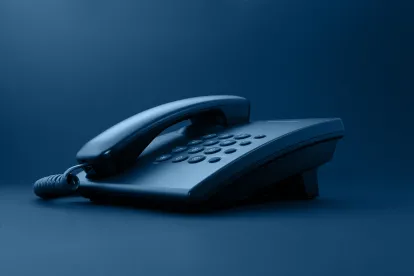On March 24, the Eighth Circuit court of appeals held that a text messaging software that randomly selects numbers from a stored list is not an ATDS if it does not generate random or sequential phone numbers to begin with. See Beal v. Outfield Brew House, No. 20-1961, No. 20-3581, 2022 U.S. App. LEXIS 7748 (8th Cir. March 24, 2022). Notably, the decision also flatly rejects plaintiffs’ misreading of “Footnote Seven” in Facebook v. Duguid.
District Court Decisions
In two separate decisions from the Western District of Missouri, plaintiffs Colby Beal and Zachary Smith alleged that they received promotional text messages from separate bar establishments, both of which used marketing software called “Txt Live.” Defendant’s employees manually entered individuals’ names and phone numbers into the Txt Live software, which included a database that stored the information. The software allowed employees to filter down to a target list of recipients based on demographic factors, select the number of potential customers to receive the message, draft or select the content of the message, and then send messages to designated recipients. When sending the messages the software “shuffles the target contacts using a numerically based randomizer. If the number of people who meet the filtered criteria exceed the number of people to whom the message will be sent, Txt Live selects the recipients at the top of the randomized list first.” Id. at 3. Both district court judges concluded that the “number shuffling” did not constitute random selection of telephone numbers to be called.
Eighth Circuit Decision
Plaintiffs appealed and argued that Txt Live was an ATDS because it “produced” numbers through the “random selection of phone numbers from an existing list of contacts.” Id. at 4. The Eighth Circuit disagreed, explaining that:
Under the language of § 227(a)(1), a “random or sequential number generator” does the producing. While subjects in other contexts may produce by selecting, a generator produces by generating. An electrical generator produces by generating electricity. A password generator produces by generating a password. And a random number generator produces by generating a random number. Because Txt Live does not generate phone numbers to be called, it does not “produce telephone numbers to be called” for purposes of § 227(a)(1) of the TCPA. Id. at 5 (emphasis in original).
The court then rejected the plaintiff’s reliance on dictionaries that define “produce” as meaning “select” or “bring forth.” The court concluded, “[j]ust because “produce” can mean “select” in other contexts does not mean it includes “select” here. Id. (citations omitted).
The Eighth Circuit further reasoned that the Supreme Court’s opinion in Facebook v. Duguid “strongly bolstered” its findings. In considering Facebook, the Eighth Circuit explained that Txt Live “is exactly the kind of equipment Facebook excluded from § 227(a)(1)—‘equipment that merely stores and dials telephone numbers.’” The Eighth Circuit also rejected the notion that Footnote Seven in Facebook v. Duguid somehow supports finding that the TCPA applies to equipment that selects numbers randomly but does not generate numbers randomly.
The opinion is one of the first appellate decisions to interpret Facebook and, additionally, one of the first major opinions applying the Footnote Seven argument specifically to text messaging systems. It is also a strong authority that should help bolster defendants’ arguments nationwide, and more specifically defendants in a circuit that was largely silent on TCPA issues pre-Facebook.





 />i
/>i

